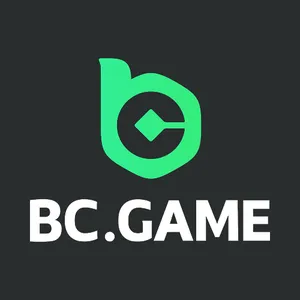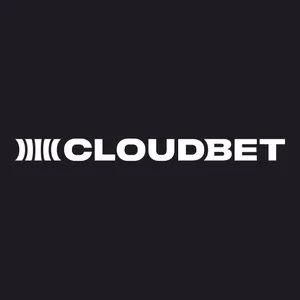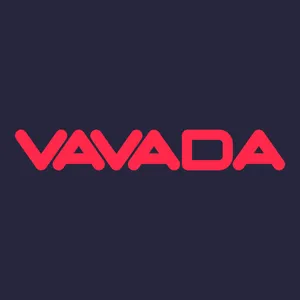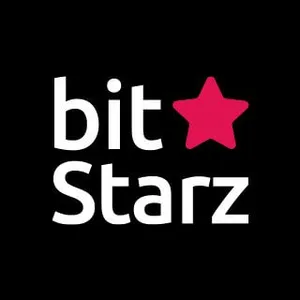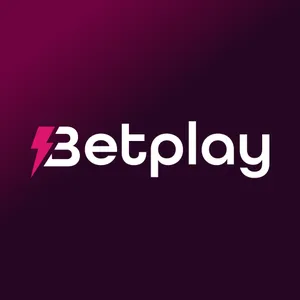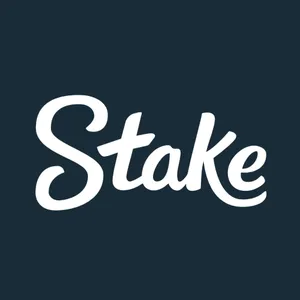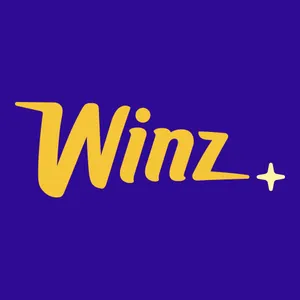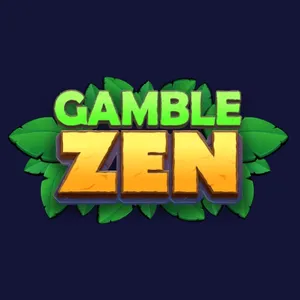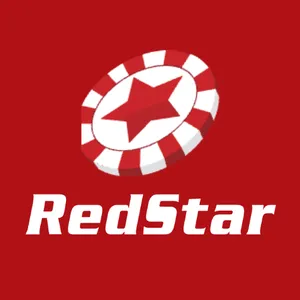
What Is GambleFi?
Fusing elements of decentralized finance (DeFi) and iGaming, Gamble Finance uses blockchain technology to build decentralized gambling and betting platforms. The people who use these platforms benefit from a range of DeFi features, including transaction transparency, lower fees, staking, liquidity pools, and more.
How Does GambleFi Work?
GambleFi protocols use blockchain technology, which not only allows for a greater degree of transparency but also enables users to acquire stakes in the platform in question. Revenue share is one of the main benefits of these services and one of their main distinguishing qualities. It provides unique opportunities for financial gain. Decentralized games, accounts, and token-specific perks are all made possible through this innovative technology.

Why GambleFi Products Are Becoming Popular
The use of blockchain has revolutionized the iGaming world, ushering in a range of GambleFi platforms and products that are becoming popular thanks to:
- Increased transparency and trust: as hinted above, blockchain’s inherent transparency ensures fair play and verifiable outcomes, thereby building trust.
- Lower costs: blockchain’s decentralized nature reduces the overheads typically associated with traditional gambling, which also reduces fees for players.
- Greater user control: using this technology, bettors avoid going through centralized intermediaries. This gives them more control of their funds and data.
- Innovative rewards: DeFi integrations in iGaming present players with unique financial incentives, adding extra value to the online betting experience.
- Accessibility: lower barriers to entry promote accessibility, making blockchain-powered gaming available to both crypto specialists and gambling veterans.
Top GambleFi Platforms in 2026
If you’re looking to get involved with Gamble Finance in 2026 but don’t know where to start, we recommend you begin by checking out our top five GambleFi platforms. In this section, we’ll examine each in turn, explaining what they are and why they may be of interest to gamblers and potential investors. Any of these options would be a great choice for newcomers to the world of Gamble Finance.
Rollbit
Rollbit is an online platform that allows users to take part in various wagering activities using gambling tokens, including its native Rollbit Coin (RLB). On this platform, users can play a range of different casino-style games, including slots, blackjack, and roulette, as well as access a sports betting service. Rollbit is also appealing to investors because it is among the top GambleFi tokens.
WINR
The WINR Protocol is a decentralized liquidity and infrastructure provider for on-chain gambling applications, standing out from market alternatives thanks to its wholly on-chain nature. This operator provides developers with liquidity while facilitating a transparent, provably fair betting experience and offering incentives for players. Additionally, the WINR Protocol’s emphasis on transparency, security, and sustainable rewards may contribute to more stable long-term token performance, though its native token can still be subject to broader crypto market volatility.
T.G.Casino
Another standout online cryptocurrency platform, T.G.Casino, integrates seamlessly with the Telegram app. With more than 500 games to choose from—including slots, live dealer games, table games, and more—it presents players with plenty of opportunities for fun. The site supports over ten major cryptocurrencies and has its native token, too. You can check the latest price here.
Lucky Block
A blockchain-based platform offering a range of casino-style games, Lucky Block is another option worth considering. Users benefit from quick transactions and access to a range of exclusive bonuses, as well as the ability to play using a variety of cryptocurrencies. The site’s native coin, $LBLOCK, currently has quite a low trading volume, which may indicate limited liquidity and significant price fluctuations. As such, it may not be the best option for investors, but it can provide site users with added value by allowing them to access exclusive rewards and bonuses.
CoinPoker
An online blockchain-based poker platform, CoinPoker offers players a decentralized, fully transparent gaming experience, utilizing cryptocurrency for all transactions. Tether (USDT) is CoinPoker’s primary in-game currency, but it also boasts a native token, CHP, which the site uses as “bonusing fuel.” Multiple poker variants are available for users to try, and they can also benefit from a 33% weekly rakeback if they have a CHP balance in their account.
Regulation and Challenges
Gambling Finance is in its early stages, so it still has a few regulatory and operational hurdles to overcome before it can reach its full potential. Many jurisdictions have yet to impose specific regulations for this sector, though some authorities have signaled that compliance, particularly for Know Your Customer (KYC) and Anti-Money Laundering (AML), will be enforced.
Here are some of the key challenges:
- Regulatory uncertainty: the decentralized nature of these protocols means that they are difficult to regulate, leading to varied legal status across different jurisdictions.
- Customer protection: traditional consumer protection laws often prove inadequate for blockchain regulation, meaning it’s important for platforms to develop rigorous self-regulatory practices.
- Security risks: blockchain benefits from enhanced transparency, but it is not infallible; cyberattacks, fraud, and smart contract vulnerabilities still pose significant risks to users.
- Cryptocurrency volatility: gambling crypto coins are inherently volatile, amplifying both potential gains and losses for gamblers.
It is also worth highlighting that global economic changes have a measurable impact on the growth of this new sector. Inflation, recessionary risks, and shifts in investor sentiment all influence the adoption of Gamble Finance platforms, as do regulatory reactions to economic conditions. For example, moments of economic uncertainty are often met with stricter oversight, with more stringent rules often impeding the expansion and innovation of new financial products.
Responsible Gaming
Gambling addiction is a serious issue in today’s climate, so it’s crucial that players, particularly those using volatile cryptocurrencies, take the necessary steps to manage their risk. By bringing together decentralized finance and iGaming, Gamble Finance introduces a range of unique challenges that require both platform operators and users to adopt responsible gambling practices. To play safely:
- Do your research and ensure you have a complete understanding of all the risks associated with gambling before you stake any real money.
- Take frequent breaks, avoid daily play, and make sure to steer clear of gambling if you’re feeling overemotional.
- Many platforms have deposit limits, time-out options, and self-exclusion tools to help users manage their betting habits, which you should use as required.
- Reach out for help if you need it. There are many helpful resources for problem gamblers, such as the National Problem Gambling Helpline.
The Future of GambleFi: Predictions for the Coming Years
GambleFi is poised for significant growth over the coming years as it continues to bridge the gap between decentralized finance and the online gambling industry. For one thing, as this sector increases in popularity, we can expect lawmakers to develop clearer regulatory frameworks to support it. This will not only help to make GambleFi more legitimate in the eyes of the public, but it will also help build more robust customer protection protocols. Finally, advances in blockchain technology will likely help make it more accessible to non-crypto natives, bridging the gap between conventional online gambling platforms and decentralized gambling ecosystems.
Here are some technologies that could make an impact on the Gamble Finance scene:
- Layer 2 scaling solutions that offer faster transaction times, lower fees, and an improved user experience on blockchain-based iGaming platforms.
- Cross-chain interoperability allows integrations across different blockchain networks that can allow users increased access to various assets and enhance platform liquidity.
- Enhanced smart contract security mitigates the risk of scams and fraud by implementing improved auditing tools and identity verification methods.
- AI and machine learning are already being used to enhance the user experience, optimize odds, and boost game personalization. They can also monitor suspicious account activity in real time.
Such developments will provide new players with a more engaging, interactive, and fair gambling environment, offering financial incentives like staking and yield farming. Various technological advancements within this space may also help create a broader range of games for users to choose from, catering to different tastes and risk appetites. There will also be opportunities aplenty for investors; GambleFi is currently in its early stages, offering high growth potential and the possibility for token appreciation.
Pros and Cons
- The nature of blockchain means that transactions are highly transparent, encouraging trust.
- Reduced operational costs result in lower fees for players, greatly reducing financial barriers to entry.
- Staking, yield farming, and other financial incentives provide players with extra rewards and add further value to the iGaming experience.
- By eliminating the need for third-party intermediaries, DeFi provides users with greater privacy and allows them more control over their funds and data.
- Blockchain-based platforms can be accessed from anywhere, bypassing geographical restrictions.
- The decentralized, community-based governance enjoyed by these services allows token holders to directly influence platform development.
- Cryptocurrency is volatile and high-risk, so mixing crypto and gambling can lead to significant financial losses.
- There is currently a lot of legal uncertainty around the status of blockchain technology, leaving GambleFi products open to potential regulatory crackdowns.
- Some new platforms may struggle with low liquidity and user adoption rates.
- While blockchain technology is usually secure, that doesn’t mean it’s completely infallible, as vulnerabilities in smart contracts and protocols can expose users to scams, fraud, and hacking attempts.
- The technical aspects of DeFi and blockchain technology can be challenging and off-putting to new players.
- The decentralized—and often unregulated—nature of the Gamble Finance space can attract fraudulent projects or scam artists.
Conclusion
GambleFi is still in its nascent stage, so it is difficult to predict with 100% accuracy where it will go. However, given the amount of interest this technology has garnered, as well as the innovation surrounding it, its future appears promising. There are many operational and regulatory challenges on the road ahead, but collaboration between developers and lawmakers could pave the way for its success. Investing in this arena carries certain financial risks, but the rewards are substantial. We recommend keeping your finger on the pulse and staying informed of the latest news in this dynamic sector.
FAQ
What is the biggest GambleFi coin?
Thanks to the size and popularity of the platform, Rollbit’s native RLB token is currently the biggest GambleFi coin available.
What is the difference between GameFi and GambleFi coins?
GameFi is focused on integrating gaming with financial incentives, whereas GambleFi seeks to facilitate gambling through the blockchain. Their respective coins contribute to these experiences. Some popular GameFi coins are Immutable X (IMX), Gala Games (GALA), and Floki Inu (FLOKI).
What is the difference between GambleFi and DeFi?
While Gamble Finance is all about combining blockchain and iGaming, DeFi refers more generally to an ecosystem of blockchain-based services. In other words, GambleFi is a particular niche within decentralized finance that focuses specifically on the gambling and betting experience.
What is the difference between GambleFi coins and tokens?
In Gamble Finance, coins are the native, underlying currency of a given blockchain or ecosystem, whereas tokens are created on top of existing blockchains to provide users with additional functionalities. An example of this can be found in Rollbit; while it’s built on the Ethereum blockchain, it functions as a native currency of the Rollbit platform, so it is considered a native coin rather than a token.











